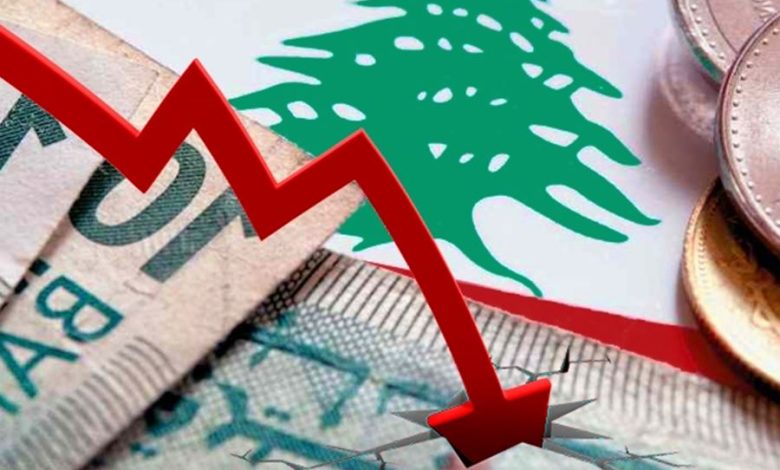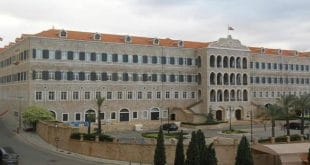### تراجع الإنتاج وتصاعد الخسائر: التحديات الاقتصادية والاجتماعية في ظل العدوان الإسرائيلي
حمل العدوان الإسرائيلي على لبنان تحديات اقتصادية واجتماعية وبيئية جسيمة، يصعب على البلاد مواجهتها في وقت تعاني فيه من آثار الأزمة المالية والنقدية التي بدأت في عام 2019.
في حديث خاص لموقع Economy Leb، أكد رئيس المجلس الاقتصادي والاجتماعي والبيئي، شارل عربيد، أن التحدي الأبرز يتمثل في الأوضاع الاجتماعية نتيجة النزوح الكبير للبنانيين من المناطق المتضررة من العدوان الإسرائيلي، مشيراً إلى أن عدد النازحين قد تجاوز المليون، وهو نزوح لم يكن مُحضَّراً له.
عربيد أشار إلى ضرورة التكافل والتضامن الاجتماعي والوحدة الوطنية في هذه الأوقات الحرجة، حيث تعاني الدولة اللبنانية من غياب الإمكانيات وعجزها عن استيعاب هذا الكم الهائل من النازحين. ورغم وجود العديد من المساعدات، إلا أن الحاجة ما زالت ملحة.
وأوضح عربيد أن التحدي الأول هو إيواء النازحين، حيث يجب تأمين الحد الأدنى من مقومات الحياة، خاصة مع اقتراب فصل الشتاء الذي سيجعل ظروف الإيواء أكثر صعوبة. وأكد أن الحكومة ستقدم خطتها في المؤتمر المزمع عقده في باريس لدعم لبنان، مع التركيز على مساعدة النازحين لتفادي الانفجار الاجتماعي الناتج عن أزمة النزوح.
كما عبر عربيد عن قلقه من سؤال مدى طول فترة الحرب، مؤكداً ضرورة الاستعداد للأسوأ. وأشار إلى التحدي الاقتصادي الذي يتمثل في التراجع الكبير في الإنتاج والاستهلاك، حيث تراجعت حركة الأسواق بنسبة تتجاوز 70%، وأفاد بأن العديد من القطاعات مغلقة حالياً، مما يجعل من الضروري العمل على خطة طوارئ اقتصادية لدعم المؤسسات الصغيرة والمتوسطة.
وقدمت الهيئات الاقتصادية ورقة إلى رئاسة الحكومة تتضمن إجراءات لمساعدة المؤسسات على الحفاظ على ديمومتها وتأمين الرواتب في حال استمرت الحرب. وتجاوزت الخسائر الاقتصادية الناتجة عن العدوان في الشهرين الماضيين الملياري دولار، مما يتطلب إعلان حالة الطوارئ الاقتصادية والاجتماعية.
وعبر عربيد عن إشادته بقدرة اللبنانيين على إيجاد الحلول في الأوقات الصعبة، لكنه أوضح أن الحرب جاءت في ظل أزمة اقتصادية ومصرفية ونقدية، مع تراجع عمليات الشحن عبر المطار والموانئ. وشدد على ضرورة التنسيق بين القطاعين العام والخاص للبحث عن حلول خلال هذه المرحلة الصعبة.
وأكد أن كل هذه الجهود لن تفيد ما لم يكن هناك انتظام في العمل السياسي، الذي يبدأ بانتخاب رئيس للجمهورية ثم تشكيل حكومة إنقاذ سريعاً للبدء في العمل الدبلوماسي لوقف إطلاق النار، يليها حوار اقتصادي واجتماعي لضمان الاستقرار والديمومة، من أجل لبنان الذي يريده الجميع سيداً حراً ومستقلاً.
المصدر: أميمة شمس الدين – lebeconomy news
### Economic Decline and Rising Losses: Economic and Social Challenges Amid Israeli Aggression
The Israeli aggression against Lebanon has brought forth significant economic, social, and environmental challenges that the country struggles to face, especially as it continues to deal with the repercussions of the financial and monetary crisis that began in 2019.
In an exclusive interview with Economy Leb, Charles Arabid, the head of the Economic and Social Council, emphasized that the primary challenge lies in the social issues resulting from the mass displacement of Lebanese people from the areas affected by the Israeli aggression. He noted that the number of displaced individuals has surpassed one million, and this displacement was not prepared for.
Arabid stressed the necessity of solidarity and national unity during these difficult times, highlighting the lack of resources within the Lebanese state to accommodate such a large number of displaced persons. While many forms of aid are available, the need remains critical.
He pointed out that the first challenge is housing these displaced individuals, who must be provided with the basic necessities of life, especially with winter approaching, which will significantly complicate shelter conditions. He confirmed that the government would present its plan at the upcoming conference in Paris to support Lebanon, emphasizing that assistance for the displaced should be a priority to prevent a potential social explosion arising from the displacement crisis.
Arabid also expressed concern about how long the war would last, affirming the need to prepare for the worst. He indicated that the economic challenge is considerable, with a significant decline in production and consumption, estimating that market activity has decreased by over 70%. He lamented that many sectors are currently closed, and emphasized the importance of developing an emergency economic plan focused on supporting small and medium enterprises to ensure their viability.
The economic bodies have submitted a paper to the government outlining measures that could assist businesses in maintaining their operations and ensuring salaries in the event the war persists. Arabid noted that the economic losses from the aggression in the past two months have exceeded two billion dollars, necessitating the declaration of a state of economic and social emergency.
While praising the resilience of the Lebanese and their ability to find solutions in challenging times, Arabid noted that the war has occurred against a backdrop of economic, banking, and monetary crises, coupled with a decline in shipping operations through airports and ports. He emphasized the need for coordination between the public and private sectors to seek solutions during this difficult phase.
He reiterated that all these efforts will be in vain without political regularity, starting with the election of a president and quickly forming a rescue government to initiate diplomatic efforts for a ceasefire, followed by an economic, social, and political dialogue to secure stability and sustainability for a free, independent, diverse, and investment-attractive Lebanon.
translated by economyscopes team
 سكوبات عالمية إقتصادية – EconomyScopes إجعل موقعنا خيارك ومصدرك الأنسب للأخبار الإقتصادية المحلية والعربية والعالمية على أنواعها بالإضافة الى نشر مجموعة لا بأس بها من فرص العمل في لبنان والشرق الأوسط والعالم
سكوبات عالمية إقتصادية – EconomyScopes إجعل موقعنا خيارك ومصدرك الأنسب للأخبار الإقتصادية المحلية والعربية والعالمية على أنواعها بالإضافة الى نشر مجموعة لا بأس بها من فرص العمل في لبنان والشرق الأوسط والعالم




